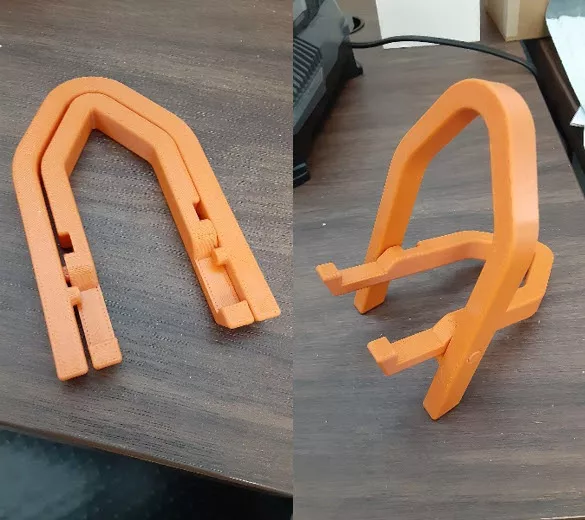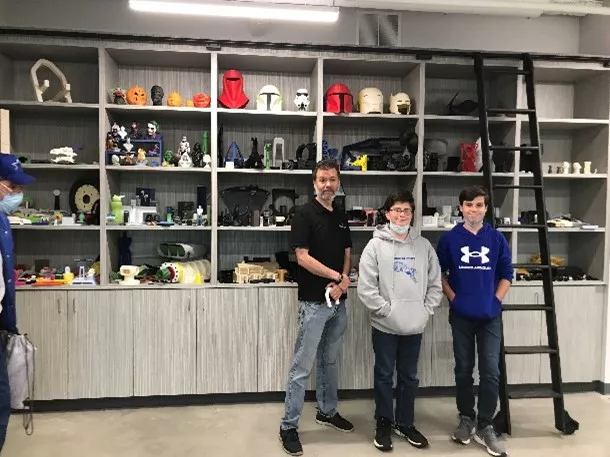STEM Education in Metro Detroit | GoEngineer Gives Back
Growing up in the city of Detroit, I was constantly bombarded with the importance of city sports (e.g., opening day for the Tigers, the Stanley Cup wins for the Wings, the DDDDDDDDe-troit Pistons, and the roar of the Lions). In school, I had friends who dreamed of becoming the next Isaiah Thomas or Berry Sanders as a way out of the inner city, but as a kid, I focused more on my brain than my brawn.
Somehow, I knew that their odds of making it as a sports superstar were slim to none, considering the number of kids who believed that that was their way out versus the number of slots on a team. With my school focused mainly on sports and limited outlets available to shine my academic achievements, I felt left behind wondering... what about me?
Years later, while at a work event, I had the pleasure to bump into Sue Tyner, of Saint Joseph Schools in Lake Orion, Michigan. During our conversation, I explained my role as the Lead SOLIDWORKS Instructor for GoEngineer in the Great Lakes Region and my ongoing support of FIRST Robotics Competitions (FRC). Sue asked me if I would consider teaching her school's STEM students in Metro Detroit about SOLIDWORKS in a future training course.
Absolutely!
At our GoEngineer training lab in Auburn Hills, MI, the Saint Joseph team learned how to build a model phone cradle using SOLIDWORKS 3D CAD software, that would then be 3D printed on a Stratasys Fortus 450 FDM 3D printer. (Special thanks to our 3D printing expert, Richard Cromwell, for helping give these students a unique experience to share with friends and family).

Getting Involved in FIRST
FIRST (For Inspiration and Recognition of Science and Technology) was founded in 1989 by inventor and entrepreneur Dean Kamen (inventor of the Segway PT), with inspiration and assistance from physicist and MIT professor emeritus Woodie Flowers.

The FIRST Robotics season is a six-week competition where coaches, teachers, and parents assist and mentor high school students to build a robot weighing 120 pounds or less.
The first challenge is to read, understand, and interpret the rules for the season. Then each team designs a robot based on those rules, manufactures and tests the robot, perform design changes, write code to control the robot, and then practice with their robot - all in the allotted six-week time period.
Once their robot is ready to go, the games begin! Games consist of putting balls in goals or stacking items while maneuvering around obstacles and climbing structures. This YouTube video shows Michigan school teams competing at a FIRST District Event.
Each team brings its robot to compete in the season's local and state competitions, with hopes of moving on to the world event. The final competition in January/February is broadcast live around the world!
In 2020, there were 3,898 teams worldwide with over 97,000 students.
Keep in mind that these are high school kids with no background in design or manufacturing. As trained professionals, we are often given short deadlines to complete a project but have the experience and knowledge, gained in the design and manufacturing world, to support us as well as teams of professionals that have the experience and equipment for manufacturing. These kids have six weeks!
Why is STEM Education important?
In their recent article, Embassy Education, an online coding school and digital platform for kids stated that "most careers require some amount of knowledge in science, technology, engineering, and mathematics. Even those you least expect. For example, psychologists need to learn data analysis in order to figure out what people are usually troubled with. The problem is that most students graduate without these skills and this doesn’t end here. Our communities need a well-trained workforce to fill job vacancies, boost the economy, and build the future. This is why STEM education is vital: it’s about being ready for university, job opportunities, and life.”
Why You Should Be a Part of FIRST Robotics
Now is the time to give back to the design world! Being part of FIRST Robotics and STEM education helps shape and inspire the next generation of designers and manufacturers. It also helps organizations and students network early on. I know several kids that went on to work for companies that supported and sponsored their teams. This is your chance to be part of something bigger and leave a legacy behind you.

Who should Mentor a FIRST Robotics Team?
Everyone should! FIRST Robotics teams learn more than just design and engineering skills from their mentors. Some additional skills mentors can help with are
- Public speaking: Since it's not just a seasonal program, FIRST teams work on planning and building all year long. The team is judged on their knowledge of the robot and must present their artwork in front of FRC judges.
- Planning: Each team is responsible for their own finances, materials, build shop, and marketing for recruiting new members.
- Marketing: A good team needs a marketing department to create posters, websites, and pamphlets to distribute to local businesses for sponsorship and financial support.
- Accounting: A good team needs an accounting department to monitor money coming in and money being spent on supplies.
- Logistics: A good team needs to have someone handling logistics to coordinate transportation to and from events, hotel stays for away events, and to ensure meetings are set up, and deadlines are met.
You likely have a skill a FIRST team can benefit from. Learn how to connect with a team near you here to become a mentor.
Related Articles
3D Printed Topographical Map Project: Preventing Future Flood Damage in Mid-Michigan
3 Reasons Students Excel with Makerbot METHOD
Vasquez Family Battles to the Top at BattleBots 2018
Learn SOLIDWORKS Online: Virtual Classroom vs. Self-Paced Training

About James Ortiz
James Ortiz joined the VAR community in 1997 with DASI Solutions (now GoEngineer) as the SOLIDWORKS Technical Support Manager for Michigan, Ohio, Indiana, and northern Kentucky. James then joined the pre/post-sales team to perform product demos, SOLIDWORKS and PDM implementations, and produce a multitude of content for events and trade shows. James is currently a SOLIDWORKS Training Specialist based out of Auburn Hills, MI.
Get our wide array of technical resources delivered right to your inbox.
Unsubscribe at any time.